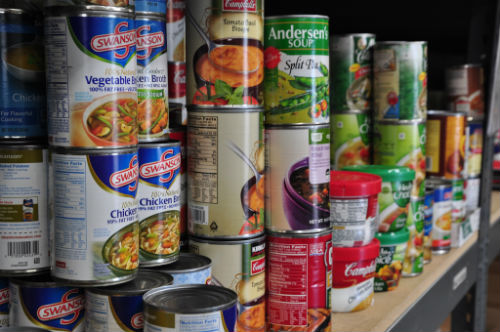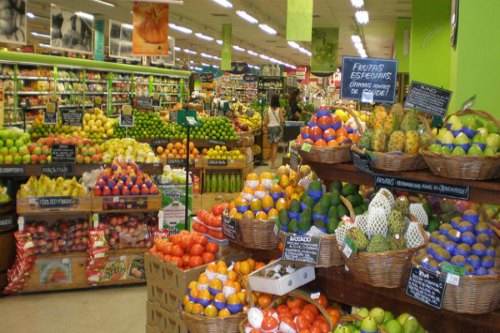

Believe it or not, you can only eat so much pizza; it won’t take long before delivery and eating out finally gets old. In college, you don’t have time to go to the store everyday, so as with many things in this transitional point of life, planning ahead is key. Proteins will come and go, but shopping for a sustainable base of food will make cooking at home much easier and quicker. To better prep your pantry, scroll through to find some of the basics – and essentials – that will keep you cooking without having to restock every week.
Oils, Vinegars & Condiments
- Extra-virgin olive oil for cooking and salad dressings
- Canola oil for cooking and baking
- Flavorful nut and seed oils for salad dressings and stir-fry seasonings: toasted sesame oil, walnut oil
- Butter, preferably unsalted. Store in the freezer if you use infrequently.
- Reduced-fat mayonnaise
- Vinegars: balsamic, red-wine, white-wine, rice (or rice-wine), apple cider
- Asian condiments and flavorings: reduced-sodium soy sauce, fish sauce, hoisin sauce, mirin, oyster sauce, chile-garlic sauce, curry paste
- Kalamata olives, green olives
- Dijon mustard
- Capers
- Ketchup
- Barbecue sauce
- Worcestershire sauce
Flavorings
- Kosher salt, coarse sea salt, fine salt
- Black peppercorns
- Onions
- Fresh garlic
- Fresh ginger
- Anchovies or anchovy paste for flavoring pasta sauces and salad dressings
- Dried herbs: bay leaves, dill, crumbled dried sage, dried thyme leaves, oregano, tarragon, Italian seasoning blend
- Spices: allspice (whole berries or ground), caraway seeds, chili powder, cinnamon sticks, ground cinnamon,coriander seeds, cumin seeds, ground cumin, curry powder, ground ginger, dry mustard, nutmeg, paprika, cayenne pepper, crushed red pepper, turmeric
- Lemons, limes, oranges. The zest is as valuable as the juice. Organic fruit is recommended when you use a lot of zest.
- Granulated sugar
- Brown sugar
- Honey
- Pure maple syrup
- Unsweetened cocoa powder, natural and/or Dutch-processed
- Bittersweet chocolate, semisweet chocolate chips
Canned Goods & Bottled Items
- Canned tomatoes, tomato paste
- Reduced-sodium chicken broth, beef broth and/or vegetable broth
- Clam juice
- “Lite” coconut milk for Asian curries and soups
- Canned beans: cannellini beans, great northern beans, chickpeas, black beans, red kidney beans
- Canned lentils
- Chunk light tuna and salmon
Grains & Legumes
- Whole-wheat flour and whole-wheat pastry flour (Store opened packages in the refrigerator or freezer.)
- All-purpose flour
- Assorted whole-wheat pastas
- Brown rice and instant brown rice
- Pearl barley, quick-cooking barley
- Rolled oats
- Whole-wheat couscous
- Bulgur
- Dried lentils
- Yellow cornmeal
- Plain dry breadcrumbs
Nuts, Seeds & Fruits
- Walnuts
- Pecans
- Almonds
- Hazelnuts
- Dry-roasted unsalted peanuts
- Pine nuts
- Sesame seeds
- Natural peanut butter
- Tahini
Assorted dried fruits, such as apricots, prunes, cherries, cranberries, dates, figs, raisins (Store opened packages of nuts and seeds in the refrigerator or freezer.)
What are some items you consider to be a necessity for your college pantry? Share you thoughts with us in the comment section below!






 Equal Housing Opportunity
Equal Housing Opportunity


1 Comment. Leave new
[…] into your first apartment is an exciting time. Unfortunately, cooking your first meal in a kitchen shared by a roommate or two can really put a damper on […]